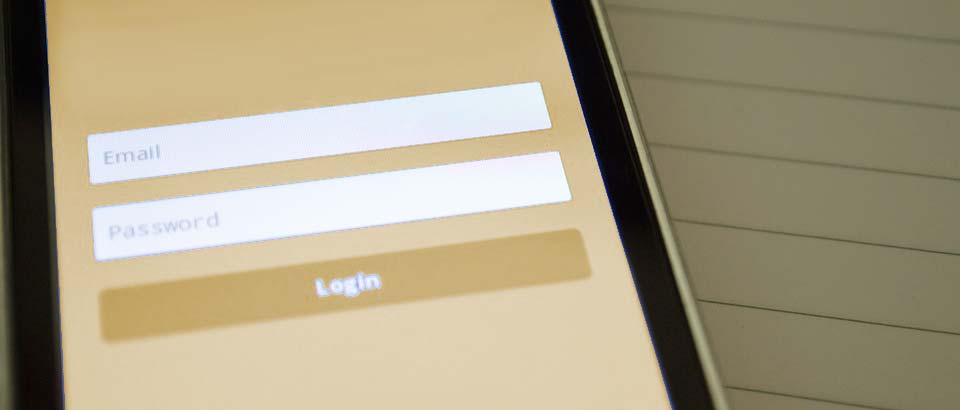There are many unsuspecting scenarios online where attackers gain the opportunity to steal data or send malicious files online. This is continually becoming more problematic with the acceleration of exceedingly advanced technology. According to a report, hackers pocketed a total of £130 billion from consumers just last year using these frightful methods. We want to help people stay safe online and have shared a selection of common online scenarios you need to be aware of to help avoid malicious attacks.
(1) Clicking Suspicious Links / Ads:
Everybody has encountered some form of distrustful advertisements online or come across suspicious websites after clicking a link while browsing online. While many of these websites and advertisements are crucial for businesses in order to generate interest in their products, there are individuals out there who have other intentions. Some of these display advertisements you occasionally see can be generated from unofficial sources, and shouldn’t be trusted. You may perhaps be browsing a biking website searching for instructions to change a bike tyre and find an appealing link to an “Easy Bike Tyre Changing Guide”. This could look quite tempting to click, and I’m sure most links / ads will likely be legit, however it could just as easily prompt you to a page asking for payment details before offering you the guide. It’s encouraged to be suspicious of scenarios similar to this which ask you to give personal details. Unsuspecting users may enter their credit card details before checking anything, but unfortunately have their personal data stolen.
(2) Online Survey Scams:
There are countless instances of official online surveys which are legitimate but occasionally some online surveys can hide their true intentions, such as stealing personal data. You will often find that creators of online surveys entice you in by offering exciting rewards, such as money or discounts, but it’s crucial to be cautious before taking part. If you ever receive an email asking you to participate in an online survey, be sure to check the name of the business which sent you this email, and check the email address too (read our email section located further below). If you don’t recognise the sender, it’s likely to be a scam and you should simply delete the email to avoid falling victim to an online scam. If you do happen to click on the survey, malicious spyware could be installed on your computer or attackers may attempt to steal your personal data by asking for personal information. This could include stealing your credit card details or allowing attackers to steal personal data on your computer.
In summary, if you ever receive an email or notice a banner on a website asking you to take part in an online survey, always be cautious before clicking it. Furthermore, unless you’ve actually requested to be on a survey mailing list or don’t trust a website, what you’re seeing is probably spam.
(3) Fake Login Pages:
Building a fake login page to replicate another website can surprisingly be straightforward for attackers. These replica pages are designed to appear exactly like a genuine website but are intended to steal your information or install malicious spyware onto your computer. Amongst the most familiar approaches to this technique involves receiving bogus emails asking you to click a link to login to your account. If perhaps this is a suspicious email, the link could in actual fact direct users to a fabricated website asking you to enter your login details. This gives attackers an opportunity to steal victims personal data or send malicious files.
To prevent unfortunate events like this from ever happening it’s advised to manually type the website address (such as www.mybank.co.uk) into your browser, instead of clicking links from suspicious emails (also read below about checking if an email is legitimate or not). It’s also critical to ensure the website is secure by examining whether the address has HTTPS at the start (such as https://www.mybank.co.uk). If the website address doesn’t include this, it would be wise not to trust this website. You might also stumble across suspicious links while browsing a website or using social media (see details about this below).

(4) Receiving Phishing Emails:
Perhaps one of the most common types of online scamming attempts, which I’m confident we’ve all came across at some point in our lives, are phishing emails. Usually these types of emails are automatically placed within your junk folder by your email provider but sometimes they still make its way through. If you do ever click on a suspicious email, you could be a victim of personal data theft or have malware installed onto your computer.
To prevent this, whenever you encounter any suspicious emails (especially anything important such as banking) it’s critical to check whether the email is genuine or not. Amongst one of the most efficient ways to check this is to simply look at the email you’ve received to ensure if primarily looks genuine and official. After confirming this, you also want to double check whether the sender email address is legitimate or not. For instance, if you received an email from Amazon asking you to click on a link, you need to ensure the email was sent from a legitimate address (such as [email protected]). This looks reasonably official, but if it was “[email protected]”, this wouldn’t appear to be okay. Be sure to also check the website address if you do click on a link, as it could be a replica website with the intent to steal your personal data. Fundamentally, if you’re ever unsure and don’t want to risk anything, just simply delete any suspicious emails from your inbox. It’s much better to be safe than sorry.
(5) Social Media:
It’s been predicted that in 2019 there will be around 2.77 billion social media users across the globe, and whether you’ve already acquired a Facebook or Twitter profile, it’s unfortunately already a familiar place for online scams to take place. Currently, Facebook remains as one of the world’s most popular social networks for social media users, but this means it’s also popular for malicious activities. For example, if an issue arises with your banking and you decide to get a quicker reply by going directly to their Facebook page to send your bank a message, you could have unintentionally sent a message to an unofficial Facebook page. They could then soon reply to your message asking for personal details or perhaps even sending you to a fake login page. Although most official social pages will have a verified icon next to then (so it appears as legitimate), this can even sometimes not be enough to stay safe, so always be watchful online. To avoid this from ever happening to you, it’s important to be cautious while on social media networks, and interact with those who you know.
Overall:
First and foremost, it’s imperative to be cautious online in order to stay safe. There are so many unsuspecting opportunities online where malicious attacks can take place but as long as you use good judgment, stay alert and follow our advice, you shouldn’t have a problem. If you have any questions or queries, please do not hesitate to get in touch with us. We are always happy to help with anything.
Posted in Advice
